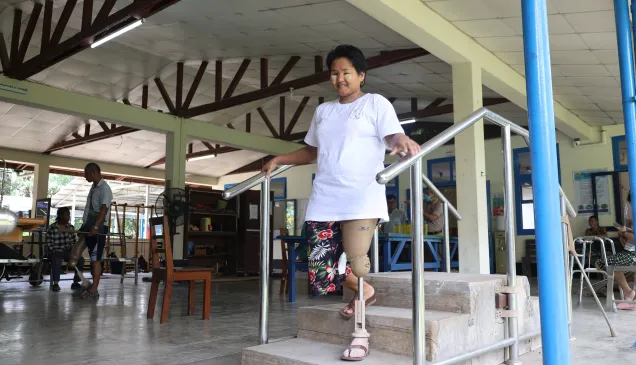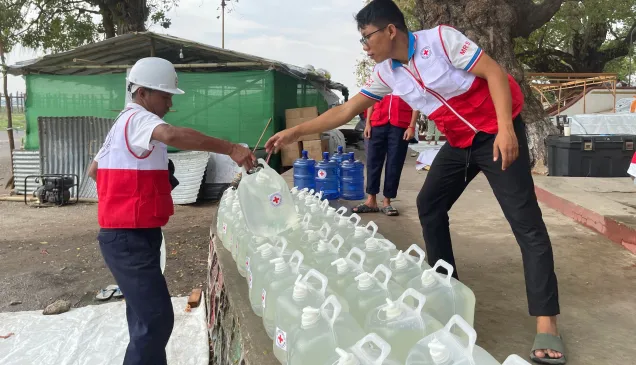Lost and displaced: Families in Bangladesh look for answers
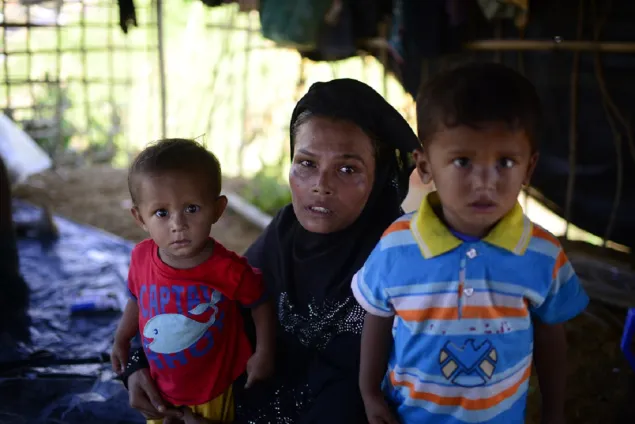
My husband and I made our way to Bangladesh on a boat. We also had to walk a lot. It took us more than ten days since we had to find our way to the border. We lost everyone on the way, including my mother, brother and father.
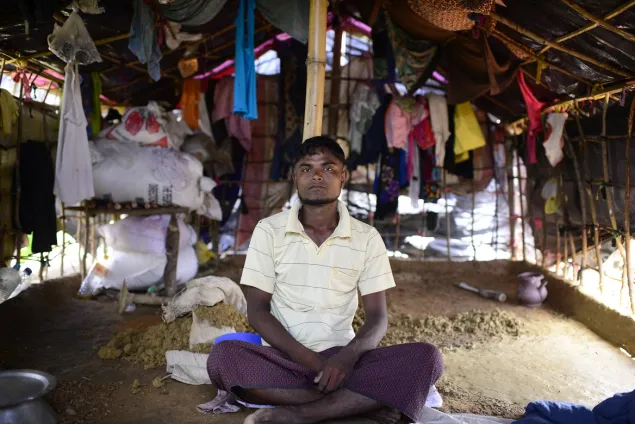
Hakim*
I came here 30 days ago, after eleven days of walking. After I arrived here, I tried contacting my father who runs a shop in Myanmar but have not yet been able to reach him.
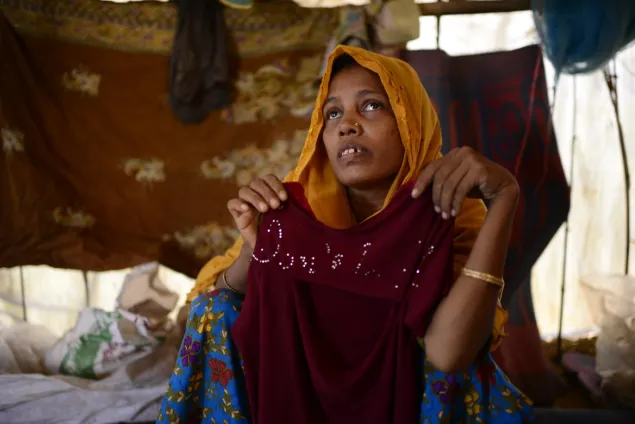
Kohinoore*
I walked for seven days. I lost my son and my daughter in the crowd on the way. My husband and I searched for them for three days until we decided to come here and look for them in the camps instead.
My son likes biscuits. Every time I see biscuits now I think of him. I have kept my daughter's dress ready for her. I live in the hope of finding them both soon.
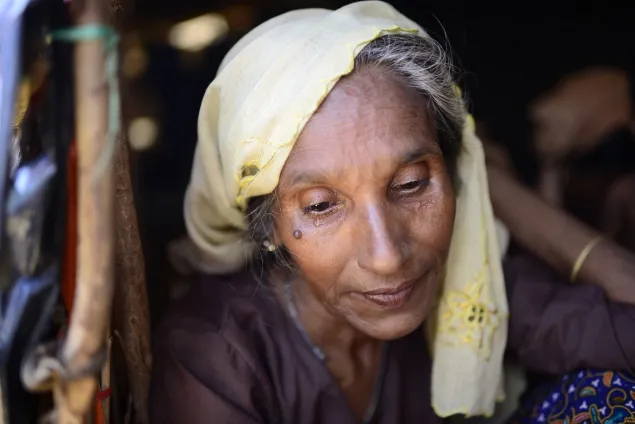
Nargish*
I left in such a hurry I couldn't even inform my two daughters who were living in another house. My husband and I walked for seven days and had to take a boat to come here. Now I don’t know where my daughters are.
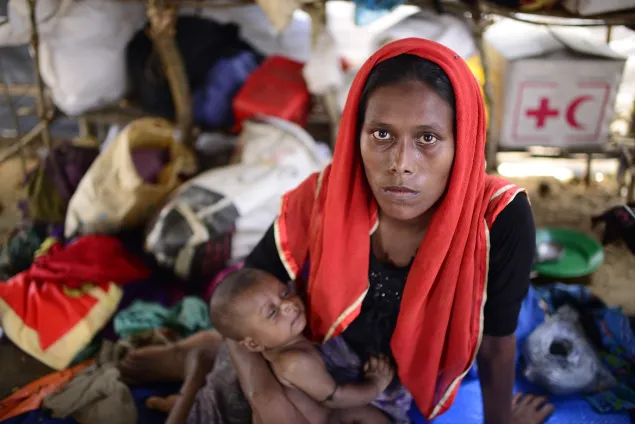
Rahima*
My father was at the market when I had to leave, so I could not wait for him. He worked hard so that we would not have to. I don’t know where he is at the moment.
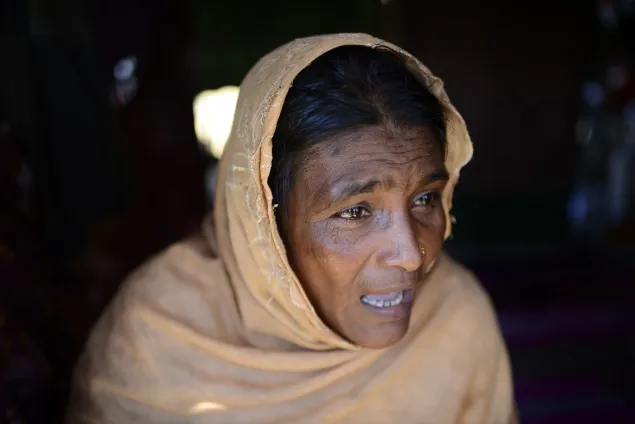
Sabina*
I arrived here in September. It took me ten days and I had to take the boat across. I don’t know where my two brothers are. My older brother raised me from the moment my parents died when I was a child. He is like a father to me.
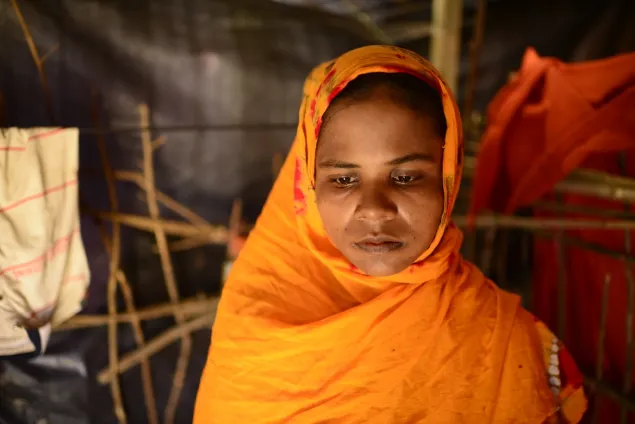
Shahana*
I lost my two sisters on the way here. We played a lot together while we were growing up. If I think about my childhood now, it makes me sad.
In just over two months, more than 600,000 people fled Myanmar. Their arrival in Cox Bazaar district in Bangladesh caused a large-scale humanitarian crisis which continues to escalate, putting pressure on aid agencies and communities already helping hundreds of thousands of people from previous waves of violence in Myanmar.
The people arriving are living in terrible conditions in desperate need of life-saving assistance including clean drinking water, sanitation and hygiene, essential food items and emergency supplies.
An estimated half of the new influx are children, many of them unaccompanied or separated from their families during the dreadful journey.
The ICRC, together with the Bangladesh Red Crescent Society (BDRCS), has deployed teams and volunteers in the camps to collect cases of separated families and provide them with the means to get in touch with their loved ones by offering free phone calls. More than 6,000 successful calls were facilitated between the family members. Moreover, the teams have been trained on other restoring family links tools which will be used to trace family members who are unreachable through phone calls.
The ICRC and BDRCS are installing solar charging stations in the camps to help the new arrivals to charge their phones and to be able to call their families. So far, five stations have been installed with another 15 to be finalized soon.
*All names have been changed


